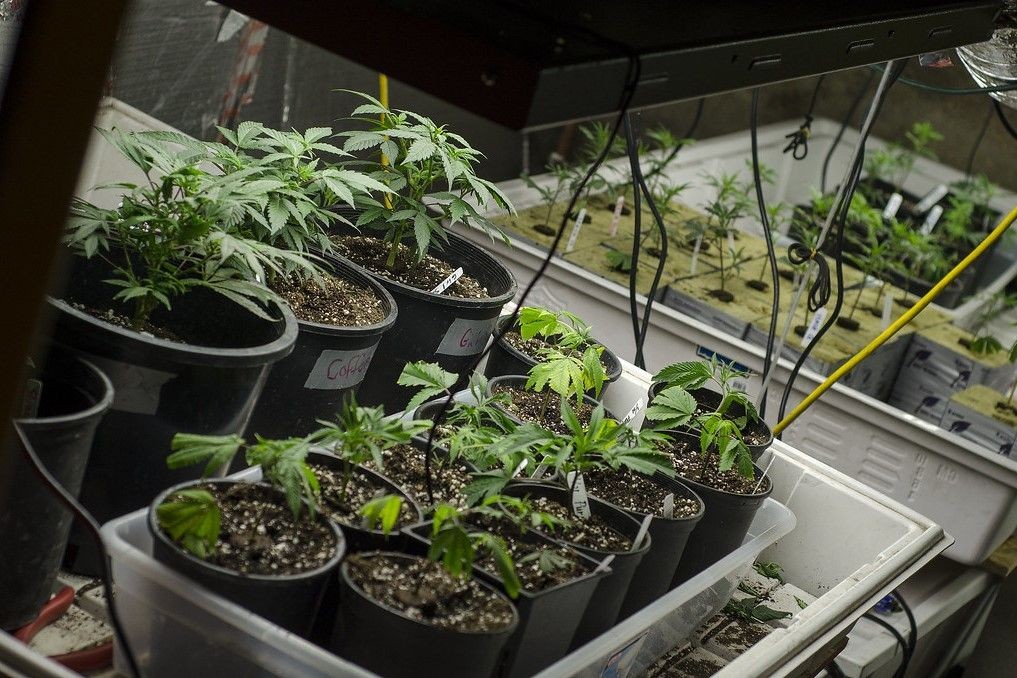
Georgian Dream has vowed to tighten its legal approach toward marijuana with new legislative amendments. The ruling party’s legislative package would introduce lengthy prison sentences for possession of the substance, contradicting past rulings by the Constitutional Court that eased the country’s cannabis policies.
The amendments already received support on Tuesday at a session of the Parliamentary Committee on Legal Affairs.
The committee chairman, Archil Gorduladze, said the article 273(1) of the criminal code, which regulates the illegal purchase, possession, transportation, or sale of marijuana, would be completely removed. Compared to the Georgian Dream amendments, this article in some cases provides for lighter, non-criminal sentences.
Instead, the ruling party vowed to extend Article 260 of the criminal code, which regulates narcotics, to cannabis and marijuana.
Under the current law, purchasing or possessing a small amount of marijuana (up to five grams dried, or up to 10 grams fresh) or a cannabis plant (up to 10 grams) is an administrative offence, and a repeat violation is punishable under criminal law, but only with a fine or community service. With Georgian Dream’s amendments, the penalties in case of repetition would be expanded to include up to one year of imprisonment.
As for harsher penalties, purchasing or possessing between five and 70 grams of dried marijuana would be punishable by up to six years in prison. The same sentence would apply to purchasing or possessing between 10 and 155 grams of cannabis plants, or between 10 and 140 grams of fresh marijuana. The production, manufacture, transfer, or transportation of these same quantities would be punishable by three to seven years of imprisonment.
Purchasing or possessing between 155 and 750 grams of cannabis plants, between 140 and 500 grams of fresh marijuana, or between 70 and 250 grams of dried marijuana would result in five to eight years of imprisonment. Production, manufacture, transportation, or dispatch of these same amounts would be punishable by six to nine years in prison.
‘Revisiting’ Constitutional Court decisions
Even before the new amendments were announced, critics have repeatedly described Georgia’s drug policy as harsh and ineffective.
However, in the past, the Constitutional Court has issued several decisions that eased the policy toward marijuana to some extent.
In one such decision in 2015, the court ruled that prison sentences for possession of up to 70 grams of dried marijuana were unconstitutional. The ruling came after a claimant had faced a lengthy prison term precisely because of that quantity. At the time, the court declared that possession of this amount alone did not indicate an intent to distribute.
The ruling party’s position is that ‘liberal approaches’ have increased marijuana consumption, and that the Constitutional Court’s decisions are ‘completely incompatible with the reality of 2025’.
According to Gorduladze, when the court abolished prison sentences, marijuana was still dangerous, but ‘much less harmful.’
However, the MP said that now ‘the danger has increased significantly’.
‘There are so-called hybrid strains circulating illegally, which are more widespread and cause even greater harm to people’s mental health — and not only their mental health’, Gorduladze added.
The MP stated that if the new amendments are challenged in the court, ‘of course we are ready to defend [our] position to the end’.
Under the amendments, a separate article will be added to the criminal code to punish the sowing, cultivation, and growing of plants containing psychoactive substances with a fine, community service, house arrest, or imprisonment from two to six years. The penalty amounts will increase depending on the quantities involved.
Cultivation of such plants was already punishable under existing legislation, but according to Gorduladze, this change will overcome the Constitutional Court’s previous decision, which had prevented prison sentences for cultivating up to 155 grams of cannabis plants. Responsibilities related to cultivation will be tightened in case of small amounts as well, regulated under the code of administrative offenses.
Gorduladze stated that another article will be added to the criminal code to confront the facilitation of drug trafficking.
‘Preparing the system for mass planting of drugs’
The legislative changes that would toughen penalties for marijuana are part of a legislative package that includes amendments to eight different laws.
Among them are changes to the criminal procedure code, under which the identity of confidants cooperating with the investigation may be concealed at any stage of legal proceedings. For this purpose, identifying features can be pixelated or blurred, and testimony may be given remotely, so that their identity is not revealed by bringing them into the courtroom.
Saba Brachveli, a lawyer at the Open Society Foundation criticised the amendments, saying that in case of a guilty verdict, the defense would not even be able to verify something as basic as whether the same false witness is being used in every case — something the Ministry of Internal Affairs has already been repeatedly exposed for in the past’.
Against the backdrop of these changes being included in the same package as drug-related amendments, Brachveli wrote in social media that ‘this is not a tightening of drug policy — this is preparing the system for the mass planting of drugs’ by police.
The Georgian authorities have already been accused of planting drugs on their critics.
In February, Transparency International claimed that Georgian police used the tactic against three citizens detained during the recent anti-government protests. If found guilty, all those detained on drug charges could face sentences ranging from eight to 20 years in prison or even life imprisonment.
Georgian Dream amended the drug-related legislation in April as well. The state policy has become harsher not only towards drug dealers but also users. In addition to longer prison sentences and higher fines, refusing to take a drug test has become punishable, and a system of ‘mandatory treatment’ for users was also introduced.











